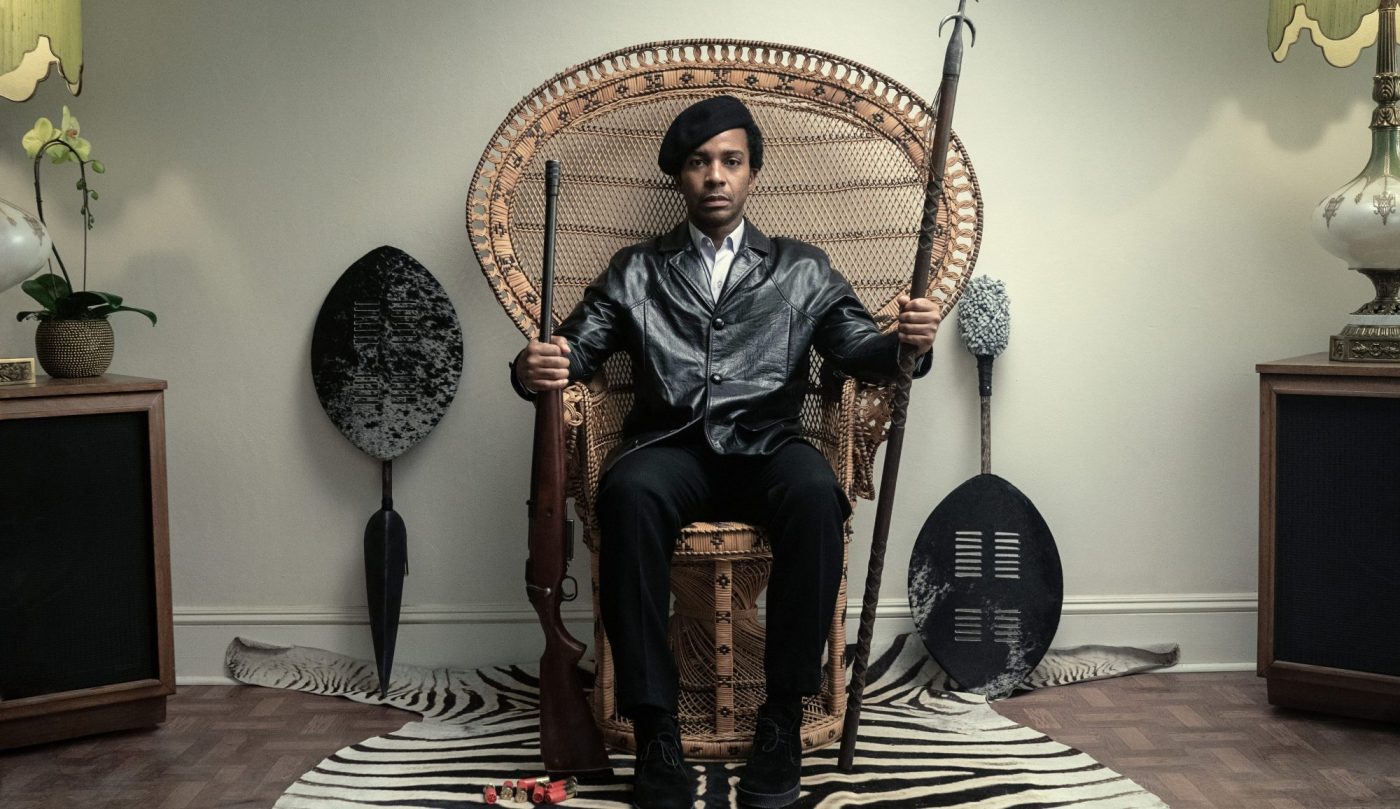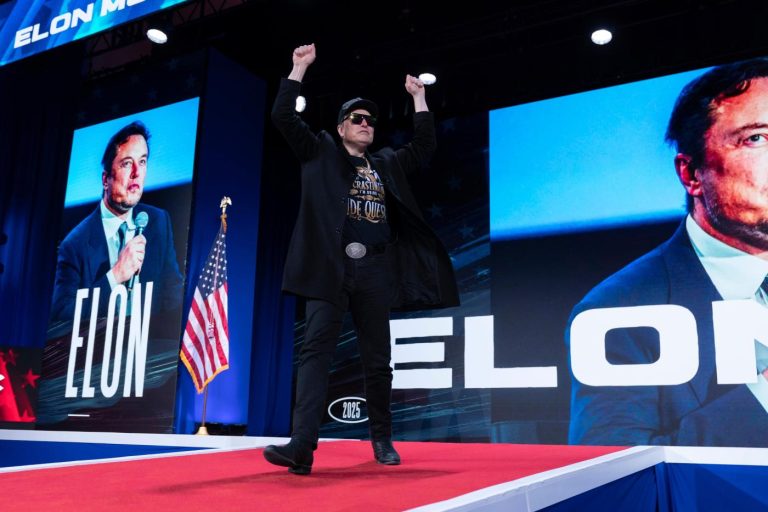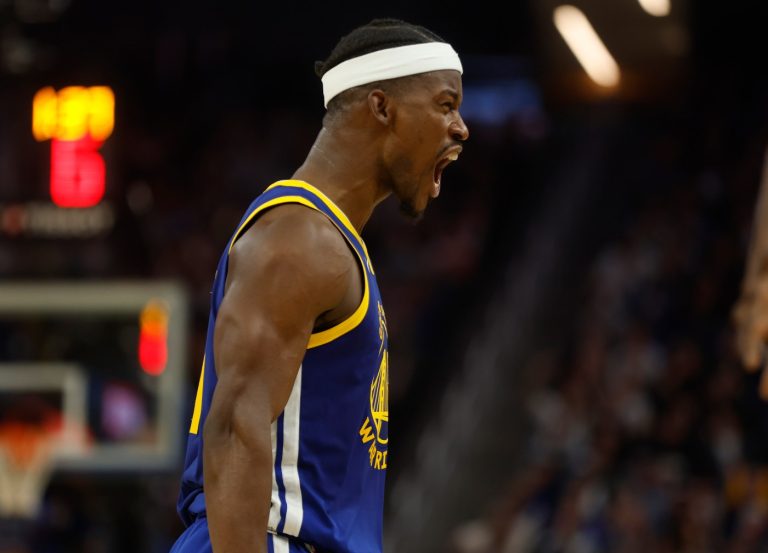Stop me if you’ve heard this one: A Black Panther revolutionary and a Hollywood insider walk into a bar … and plan a caper that has the latter helping to smuggle the former out of the country.
That story — about political activist Huey P. Newton and movie producer Bert Schneider, who made counterculture classics such as “Easy Rider” — forms the basis of the six-episode Apple TV+ series “The Big Cigar,” which attempts to be many things at once, weaving in serious themes amid the jaunty energy of a heist.
Developed by Jim Hecht (and based on a 2012 article by Joshuah Bearman), the series makes its intentions clear at the outset, with the voice of Newton, played by André Holland, offering a disclaimer: “The story I’m about to tell you is true. At least, mostly true. Or at least how I remember it. But it is coming through the lens of Hollywood, so let’s see how much of my story they’re really willing to show.”
It’s the summer of 1974 and Newton is arrested on charges of assaulting a tailor and fatally shooting a teenage prostitute. Is it a frame up? Newton says yes, and tensions with the local police and the FBI suggest this isn’t out of the realm of possibility. Out on bail, Newton needs someone who can move mountains, so he turns to Schneider (Alessandro Nivola), with whom he had been developing a biopic. “You’re the hotshot producer,” he says. “You want to produce something? Produce this.”
So Schneider concocts a non-existent movie that will shoot on location in Cuba called “The Big Cigar.” (If the fake-movie-as-subterfuge premise sounds familiar, a similar scheme was cooked up to help American hostages escape from Iran in 1979, a story depicted in the Ben Affleck-directed best picture winner “Argo,” also based on a Bearman article.) Not mentioned here? This wasn’t Schneider’s first fugitive rodeo; he had also recently funded Abbie Hoffman’s escape, stemming from drug charges.
But his plan this time becomes a comedy of errors. Dire circumstances, both logistical and psychological, ensue. But the series is committed to keeping things fairly light and palatable, even as it contends with the brutality of racist police and internal schisms (some of them baited by the feds) that would splinter the Black Panther party.
Regardless of the role, Holland is the kind of actor who holds the screen with a quiet charisma. In Newton, he has also found the character’s roiling intensity fueled by his justified paranoia and a tendency to hold grudges. Sometimes his temper gets the best of him, but he has a clear-headed assessment of how rigged systems function.
From left: André Holland as Huey P. Newton and Alessandro Nivola as Bert Schneider in “The Big Cigar.” (Brendan Adam-Zwelling/Apple TV+)
Temperamentally, Schneider (and by extension, Nivola) is his opposite — a creature of Hollywood with a movie star girlfriend (Candice Bergen) and a reputation as a renegade despite his nepo-baby origins (his father is president of Columbia Pictures). In flashback, we see Newton begrudgingly attend a party at Schneider’s invitation. When Newton spots Richard Pryor, he asks his opinion of the white crowd: “Deep in their genes,” says the comedian, “they got a lot of guilt and they’re willing to pay a steep price for absolution.”
Newton is skeptical. Revolution is survival to me, he tells Schneider, it’s optional for you. “That’s exactly why I gotta do it,” comes the reply. “I want to finance the revolution!’ To punctuate the moment, Schneider turns and does a line of coke. I mean, I laughed! (Schneider did in fact funnel considerable funds to the Black Panthers, so his words weren’t just Hollywood hokum.)
Like so many projects of this type, it was initially developed as a movie. Nothing came of that and now here we are, with the story stretched out into a multi-part series from showrunner Janine Sherman Barrois that is enjoyably watchable if occasionally tonally uncertain. (One of Barrois’ previous credits is “Claws,” which had a similar approach, both exuberantly outsized but with substance.) Tiffany Boone (as Gwen Fontaine, Newton’s girlfriend and the stabilizing force in his life), P.J. Byrne (as Schneider’s childhood friend and producing partner Stephen Blauner) and Jordane Christie (as Black Panther co-founder Bobby Seale) are terrific in supporting roles. The FBI are portrayed as clowns rather than heroes, which makes “The Big Cigar” a rarity in Hollywood at the moment, and the series itself is enjoyable despite the self-congratulatory speeches for Schneider and Blauner each, explaining why they’re good white people. Schneider in particular keeps stressing his close friendship with Newton, but nothing on screen backs that up, leaving it unclear how Newton actually felt about Schneider.
A reason to watch is simply for a terrific exchange that transpires after Blauner has just escaped with his life while trying to coordinate some of the logistics of their plan.
“You were in a shootout in a Jewish deli?” Newton asks incredulously.
Blauner is numb. “All delis are Jewish. I think.”
“Nah, the Italians got ’em,” Schneider chimes in. “The Greeks, too.
Bottom line, he tells Newton: “The mob’s got a hit out on you.” That’s only one of the many problems he will have to contend with. “The Big Cigar” turns all of it into big entertainment.
“The Big Cigar” — 2.5 stars (out of 4)
Where to watch: Apple TV+












